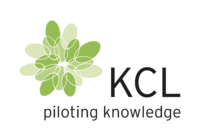Introduction to barrier coatings
Barrier coatings are essential protective layers applied to various surfaces to shield them from environmental damage. These sophisticated formulations create impermeable barriers that prevent harm from factors like moisture, oxygen, oil, grease, temperature fluctuations, and mechanical abrasion, thereby extending the longevity of the materials they cover. At KCL, we offer comprehensive support to develop tailored barrier coating solutions to your specific industry needs, providing expert consultation, and testing and piloting services.
What are the types of barrier coatings?
Barrier coatings come in several specialized types, each designed to protect against specific environmental threats like water, water vapour, oil, oxygen, and grease. Each barrier property has own specific test and method, and at KCL we can support you by offering testing of all main test methods used for packaging materials.
Moisture barriers are engineered to prevent water penetration. At KCL you can measure water vapor transmission rates (WVTR), specifically important in food packaging where exposure to humidity is a significant concern.
Oxygen barriers, including ethylene vinyl alcohol (EVOH), polyvinyl alcohol (PVOH), and metallized films, prevent the ingress of oxygen, which can lead to oxidation of materials. High-performance oxygen barriers can reduce oxygen transmission rates (OTR) to less than 1 cc/m²/day, making them essential in food preservation, pharmaceutical packaging, and protecting sensitive electronic components. At KCL you can test oxygen transmission rates (OTR) to finetune developments of your barrier formulations.
For different oil and grease types there are specific test methods in place and at KLC we can support in testing them.
